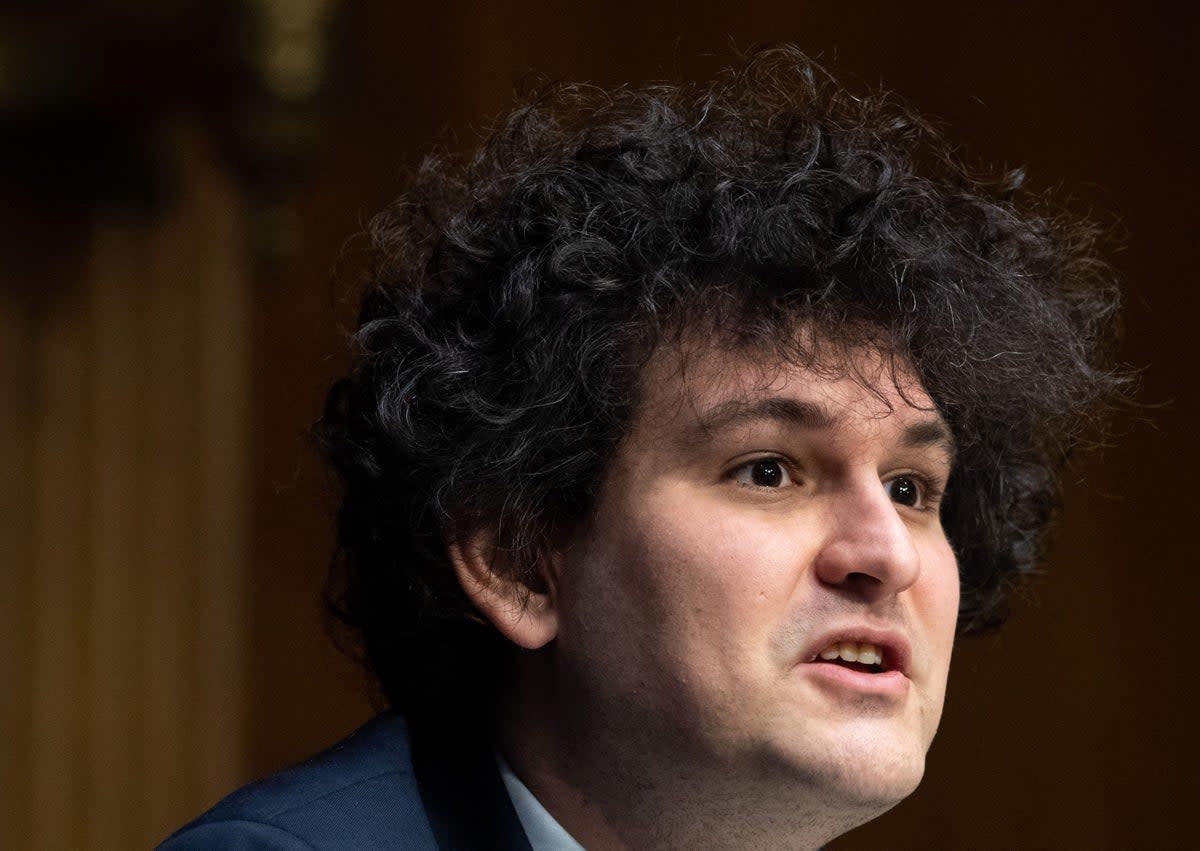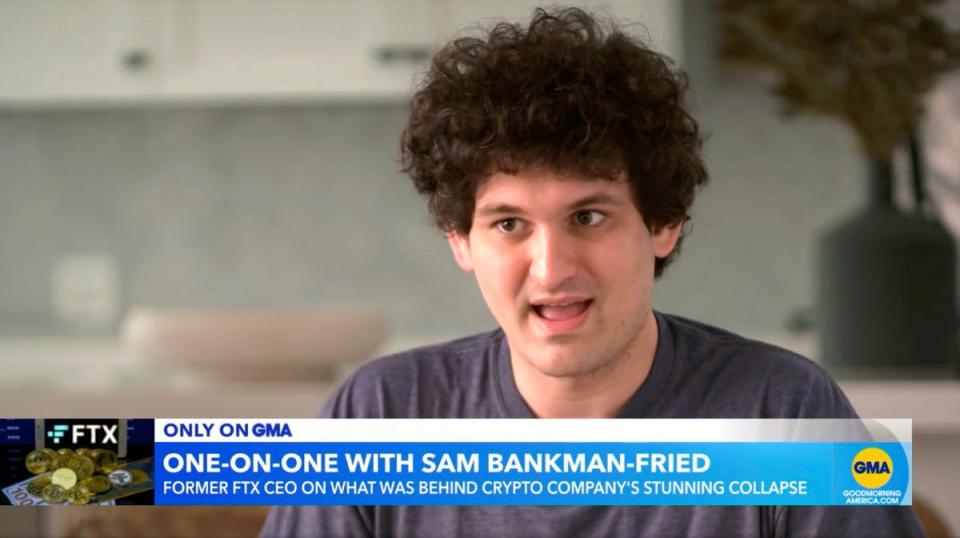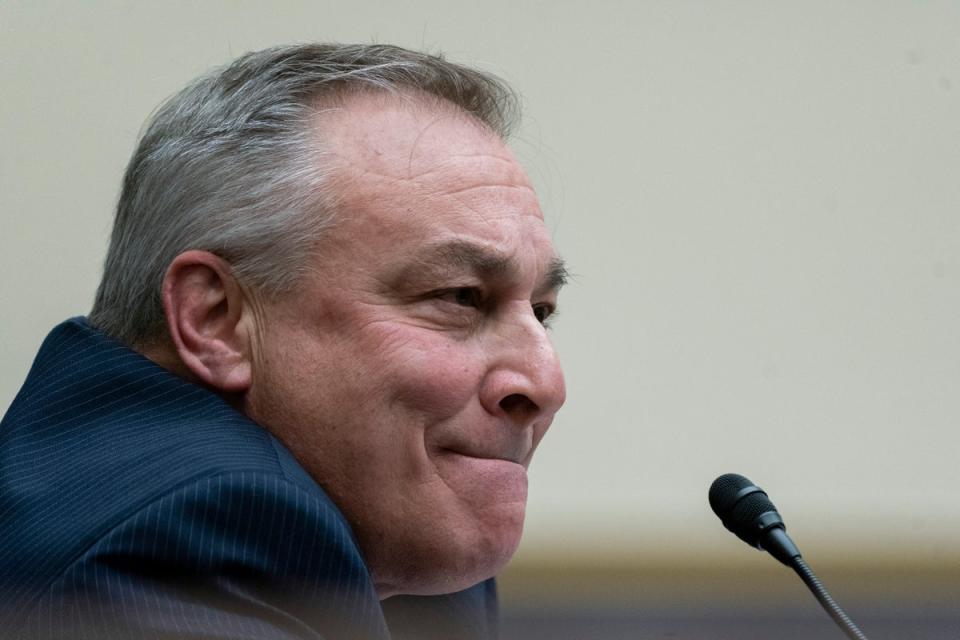What happened to FTX? The collapse of Sam Bankman-Fried’s crypto ‘house of cards’

Sam Bankman-Fried’s spectacular fall from grace has been sealed with his sentencing on seven criminal charges including fraud and conspiracy.
The FTX founder and former chief executive, known by his initials SBF, was indicted, arrested, extradited, tried, found guilty and now sentenced to 25 years in prison on charges of defrauding investors and customers of more than a billion dollars.
Last November, the former billionaire was found guilty on seven charges, including two counts of fraud and five counts of conspiracy for “knowingly” lying to investors, lenders and customers since 2019 and using money to engross himself and make campaign finance donations.
Prosecutors said Bankman-Fried diverted customer funds from crypto exchange, FTX. to his private hedge fund, Alameda Research, to fund risky investments.
On Thursday, District Judge Lewis Kaplan sentenced him to 25 years in prison and demanded he forfeit $11.2bn, saying his trial testimony was “evasive, hair-splitting” and that Bankman-Fried lied.
What happened to FTX?
Bankman-Fried became the public face of cryptocurrency after emerging in his early 20s as one of the industry’s most successful entrepreneurs.
At the age of 25, he founded crypto hedge fund Alameda Research in 2017 and began earning huge sums by buying Bitcoin in the US and selling it in Japan at a higher price.
Initially based in Berkeley, California, Bankman-Fried relocated Alameda to Hong Kong in 2018.
He founded FTX in 2019 and relocated to The Bahamas in 2021, where he welcomed high-profile guests to crypto conferences. FTX quickly became the second-largest crypto exchange in the world.

Bankman-Fried used his wealth and profile to lobby lawmakers in Washington DC to pass light-touch regulations to the crypto industry. He also wooed investors and celebrities from New York to Silicon Valley with his promises to pursue “effective altruism” and giveaway his multi-billion dollar fortune.
In addition to gathering celebrity endorsements and shelling out millions on Super Bowl adverts, he also bought the naming rights to Miami Heat’s basketball arena.
He then bought up an estimated $300m worth of luxury property in The Bahamas, according to property records reviewed by Reuters. The purchases included $121m worth of property in just the past two years, including a luxury vacation home for his parents, who are both Stanford University law professors.
The crypto magnate, whose wealth was estimated as high as $26bn, testified before Congress in December that he ran his empire with “complete transparency” and noted “there is a robust, consistent risk framework applied.”

As crypto values plummetted during 2022, crypto exchanges Celsius and Voyager, and tokens Luna and terraUSD, collapsed.
Despite the sudden onset of the “crypto winter”, FTX was seen as one of the more stable currencies, and its deep-pocketed founder was feted by celebrities and politicians.
The unravelling
In early November 2022, the spark that lit the fuse that would detonate FTX came from a report in CoinDesk, which noted that two parts of Bankman-Fried’s crypto empire, Alameda and FTX, had become “unusually close”.
CoinDesk obtained a leaked balance sheet showing that Alameda’s value was built on a “foundation largely made up of a coin that a sister company invented”.
This “co-mingling” of funds set off alarm bells in the crypto world.
Investors began fleeing the Bahama-based FTX after a larger, rival crypto exchange firm, Binance, raised concerns about its financial stability.
Binance then pledged to buy out the rival to stave off collapse, only to abruptly pull out of the deal. The company then accused FTX of mishandling customer funds and cited issues with corporate governance, wiping out 80 per cent of the value of FTX’s in-house crypto token.
The collapse sparked panic among crypto investors and saw the value of Bitcoin and Ether plunge by around 20 per cent in one day.
Bankman-Fried’s net worth plummeted from $16bn to less than $980m in one day on 8 November, according to a Bloomberg wealth index.

As much as $9bn in investors funds were wiped out, prosecutors say, with more than two million FTX customers in the US alone seeing their accounts frozen.
Among the institutional investors to see their money turn to ash was the Ontario Teachers’ Pension Plan and Sequoia Capital.
On November 12, FTX Trading and Alameda were placed into bankruptcy in the Delaware courts and Bankman-Fried resigned as CEO.
Even as FTX collapsed around him, Bankman-Fried continued to declare publicly in interviews and erratic tweets that he alone could pull the company out of its financial hole and salvage investor funds.
‘Grossly inexperienced’
After FTX was placed into bankruptcy, John Ray III, who oversaw the recovery of investor funds after the Enron collapse, was appointed its new CEO.
Testifying before the House Financial Services Committee on Tuesday, Mr Ray laid the blame for the collapse on Bankman-Fried and a small group of FTX’s top executives.
“The FTX group’s collapse appears to stem from absolute concentration of control in the hands of a small group of grossly inexperienced and unsophisticated individuals who failed to implement virtually any of the systems or controls that are necessary for a company entrusted with other people’s money or assets,” Mr Ray told lawmakers.
In illustrating FTX’s lack of proper record-keeping, Mr Ray said the crypto exchange used a basic accounting software Quickbooks which is designed for individuals and small businesses.

“Nothing against QuickBooks, it’s a very nice tool,” Mr Ray said. “Just not for a multi-billion dollar company.”
Mr Ray was peppered with questions by lawmakers about the degree of sophistication he had seen. There were comparisons to Bernie Madoff’s Ponzi scheme, the 2008 global financial crisis and the US railways fraud scheme from the 1870s.
“This is old-fashioned embezzlement. This isn’t sophisticated at all,” he replied.
Congressman Brad Sherman, a noted crypto hawk, predicted further fallout would follow in the crypto industry: “My fear is that we'll view Sam Bankman-Fried as just one big snake in a crypto Garden of Eden. The fact is, crypto is a garden of snakes."
With reporting from Ariana Baio

 Yahoo News
Yahoo News 
